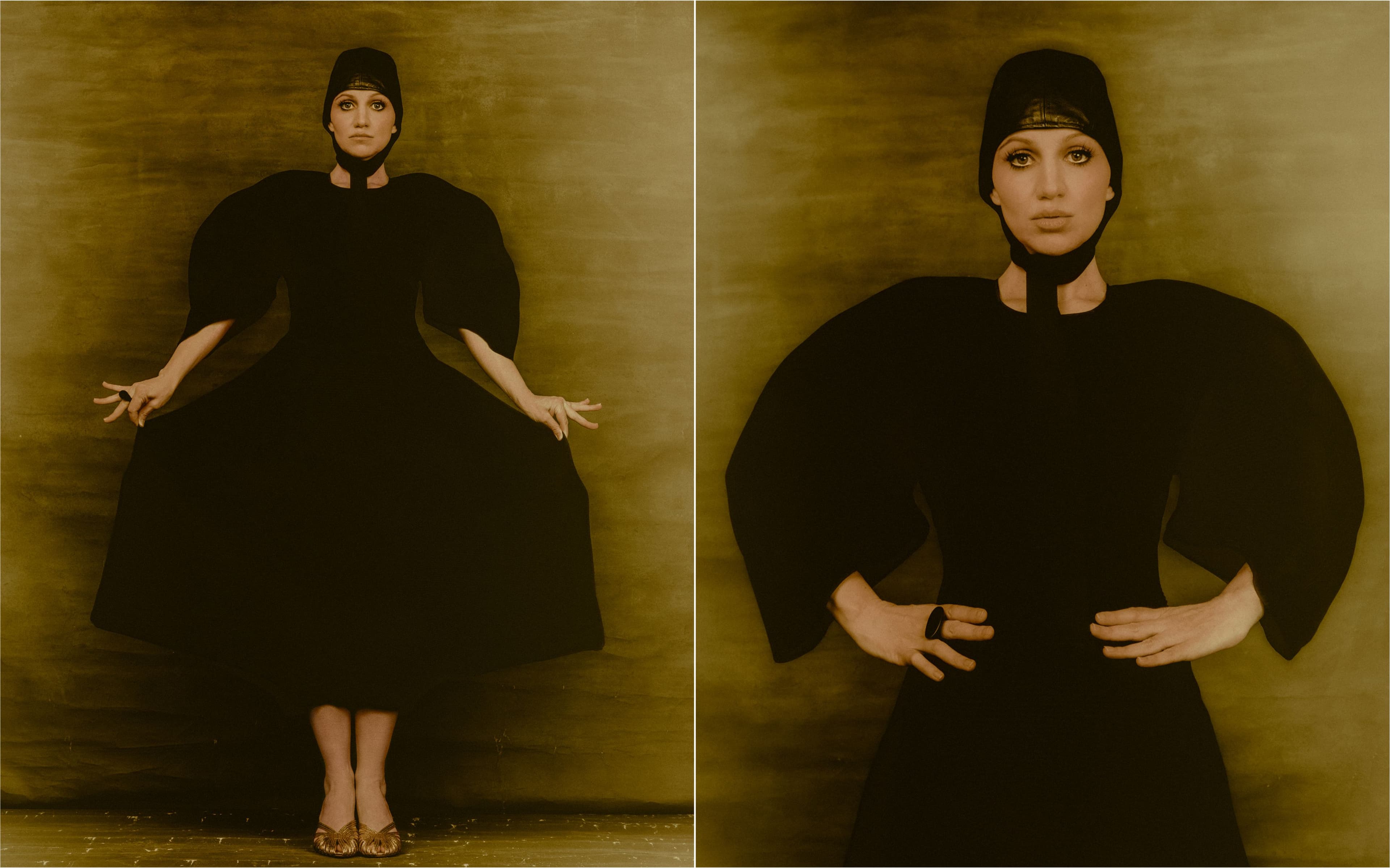
DRESS by Melitta Baumeister. HAT by Binata Millinery. SHOES, stylist’s own. All JEWELRY by Dinosaur Designs.
Annaleigh Ashford Is Here to Stay
“I guess I’m not an ingénue anymore…just the lead in a show.”
A few weeks ago, Annaleigh Ashford was still figuring out how to talk about her latest project, and what it represents for her career. In the new true crime series Happy Face, she plays Melissa Moore, the adult daughter of a serial killer who is roped into undoing the ongoing schemes he plans from behind bars. Ashford is no stranger to high-profile ventures, onstage or onscreen, even darker ones different from the bouncy musicals with which she’s usually associated. Two years ago, she received Tony and Emmy Award nominations for her work on a Broadway revival of Sweeney Todd and the crime series Welcome to Chippendales. But for the actor, Happy Face is a new challenge and opportunity.
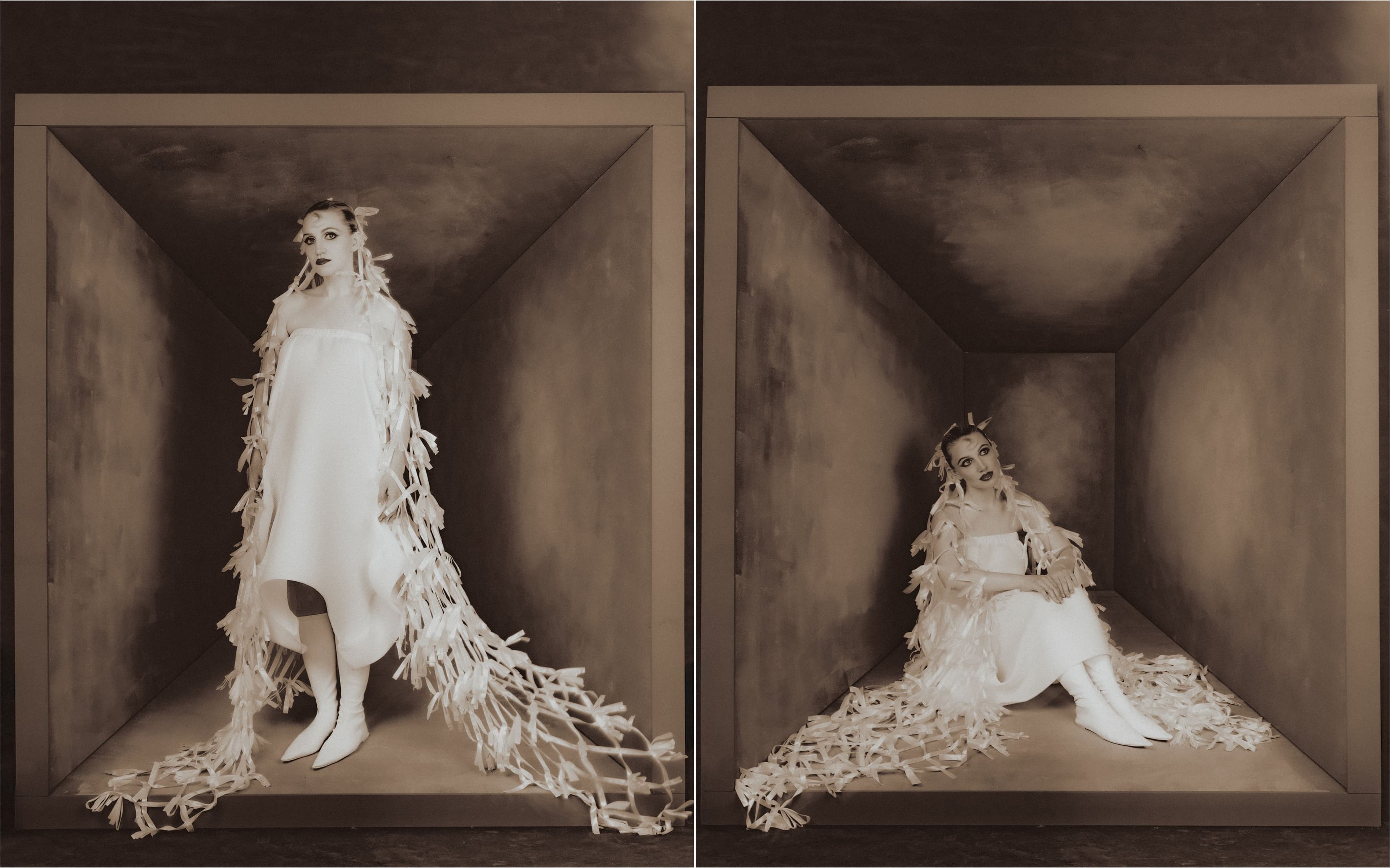
DRESS and SHOES by Melitta Baumeister. VEIL by Ocean Savage.
Ashford was approached to play Melissa while still popping people into pies as Mrs. Lovett on Sweeney. Undaunted by the prospect of diving into another murderous mindset, she was also drawn to the different vantage point she says the series offers in contrast to the genre’s usual gawkiness: It focuses on the family of, and families affected by, the killer, and not on his crimes. Moore, to whom she bears a striking resemblance, told her side of the story in a 2018 podcast of the same title, and has gone on to executive produce a number of series about cases like those of Nicole Brown Simpson and Gypsy Rose Blanchard, as well as this one.
“It felt like an honor getting to tell this woman’s story,” Ashford says. “She’s become an advocate for folks who’ve been haunted by the trauma of crime. This genre is so popular, but I’m sometimes uncomfortable when it’s so focused on the gore. When someone is murdered, at the core of their story is the loss that affects their family. Our show explores the hard questions that are asked of the family of the perpetrator: What does their life look like? What do you do if one of your family members commits a heinous crime? How do you move forward?”
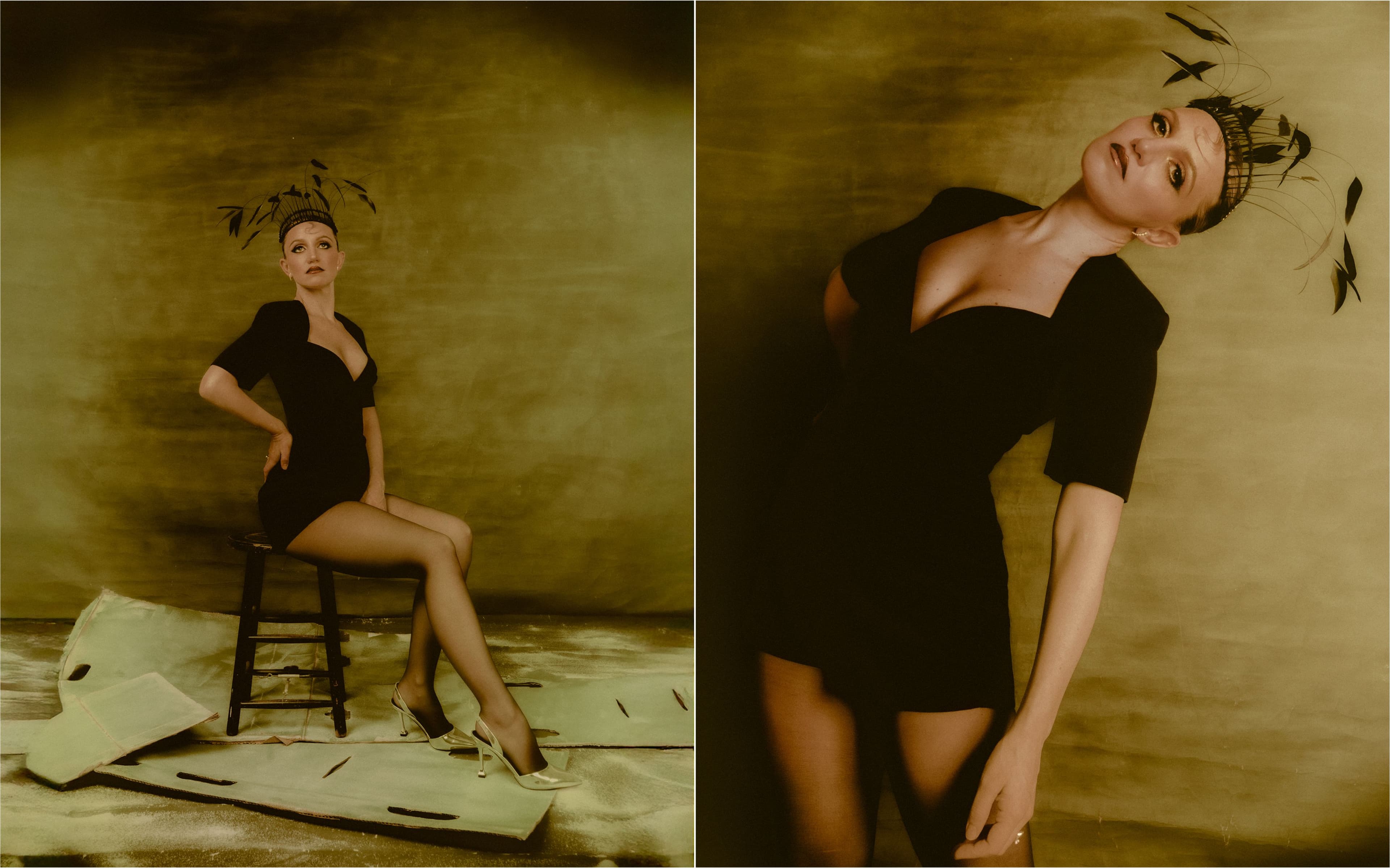
ROMPER by Al Revés. HAT by Binata Millinery. SHOES by Marc Fisher. EARRINGS by Mara Megelea. RING by Pala.
Across eight episodes, the semi-fictionalized Happy Face follows Melissa, a makeup artist at a local talk show who has cut herself off from her father, Keith, nicknamed the Happy Face Killer for the symbols he drew on letters to the police and media, and who was arrested when she was fifteen. Her own fifteen-year-old daughter, unaware of her lineage, receives an ominous letter from him, and Melissa is unhappily drawn back into his web. Though Ashford has played substantial roles in series like Masters of Sex and two seasons of American Crime Story, she says, “With many of the characters I play, I come in and I support the story. This is one of the more linear characters I’ve gotten, and I was so excited to really tell a story and have this time with an audience to show them what’s inside the brain of one of my characters.”
Having Moore around to share private letters and photos helped Ashford get into that headspace, and the series—which leaves open the possibility of continuing past this initial season—explores her anxieties around whether such violent behaviors can be inherited. “Many of these people have the combination of a type of brain more prone to committing violent acts and some sort of trauma,” she says. “From the research I did, it’s the perfect storm of nurture and nature.” In real life, the killer began sketching his namesake symbols as a plea for attention, identical to the post-arrest story the series follows, with many of his actions coming from a similar place of deep need. While motivations are an actor’s bread and butter, Ashford says she has found her own connection to that shared seedling of motivation dwindling.
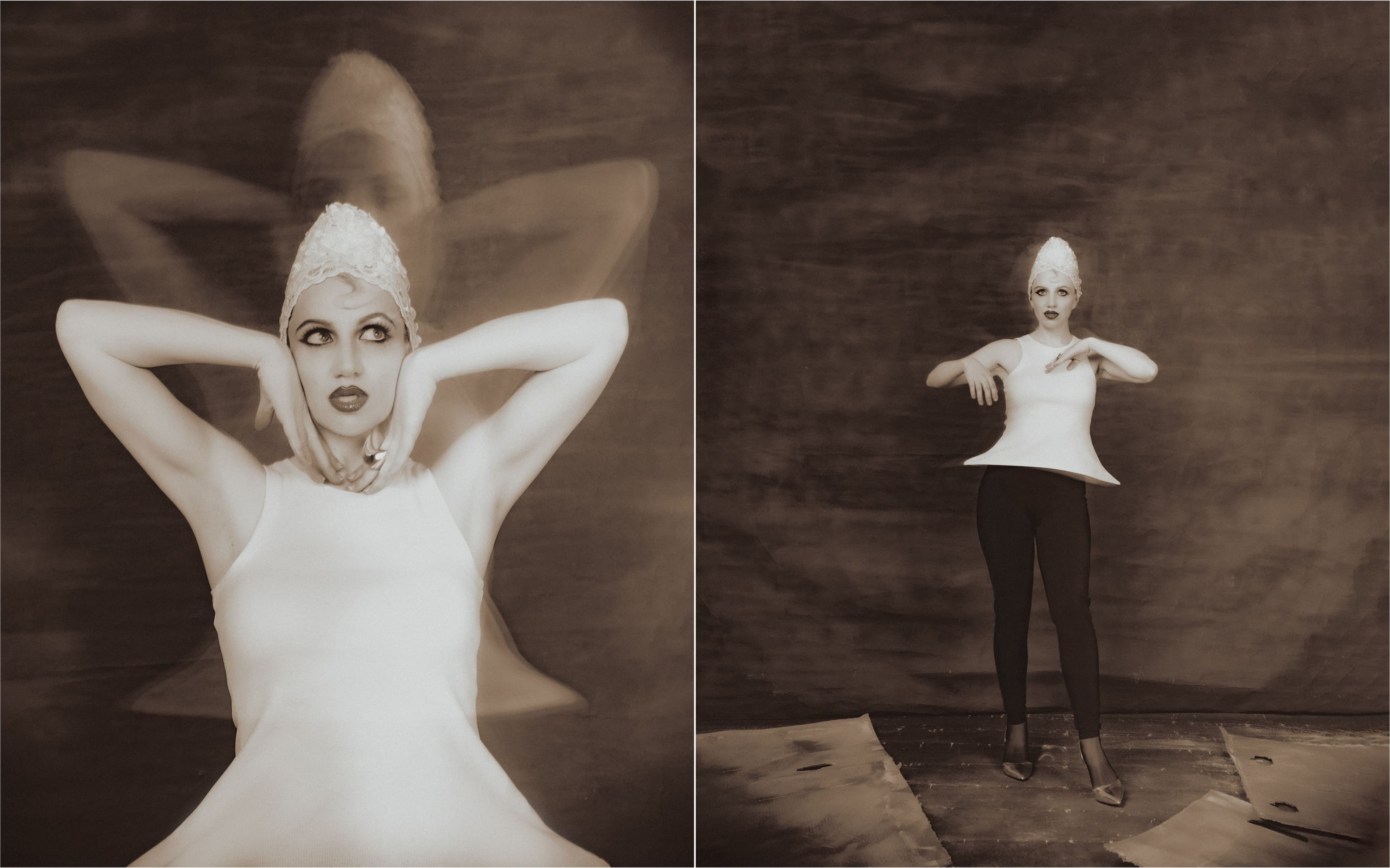
TOP by Melitta Baumeister. PANTS by Toteme. HAT by Jackie Tejada. SHOES by Marc Fisher. All JEWELRY by Dinosaur Designs.
“The older I get, the more I ask myself why I’m an actor, why I love it so much, and what I want to do it for,” she muses. “You’re constantly asked, When did you know you were an actor? I knew I wanted to be a storyteller when I was a little girl. I think that’s what it’s about: less about getting attention from telling a story and more about how it affects and makes the world different—which sounds kind of haughty, but the older I get, the less I love that part of our business. I am so aware some of my colleagues are so extra and really love that part of the business, but that’s just not me. When I go to an awards show, for example, the best part is not the red carpet but saying hello to old friends who are also so lucky to do what we get to do.”
She adds: “But it’s wild how serial killers need fame, and I think that there is a certain kind of performer who needs attention.”
If eyes on her work was ever what Ashford wanted, she achieved it through a remarkable twelve-year run of consecutive roles in some of this century’s defining stage shows. She booked the first national tour of Wicked in 2005, as a Glinda understudy, soon after graduating from Marymount Manhattan College, where, with bleached-white hair and eyebrows, she moonlit as a gogo dancer for Lady Starlight’s English Disco under the name Hollywood Starr. (“If you ever come to my club act, you’ll see some of my glam rock days come out,” she teases). That first gig led to a production which endeared her to a rising generation of musical theater lovers, if not to critics at the time: Legally Blonde, as one of protagonist Elle Woods’s sorority sisters.
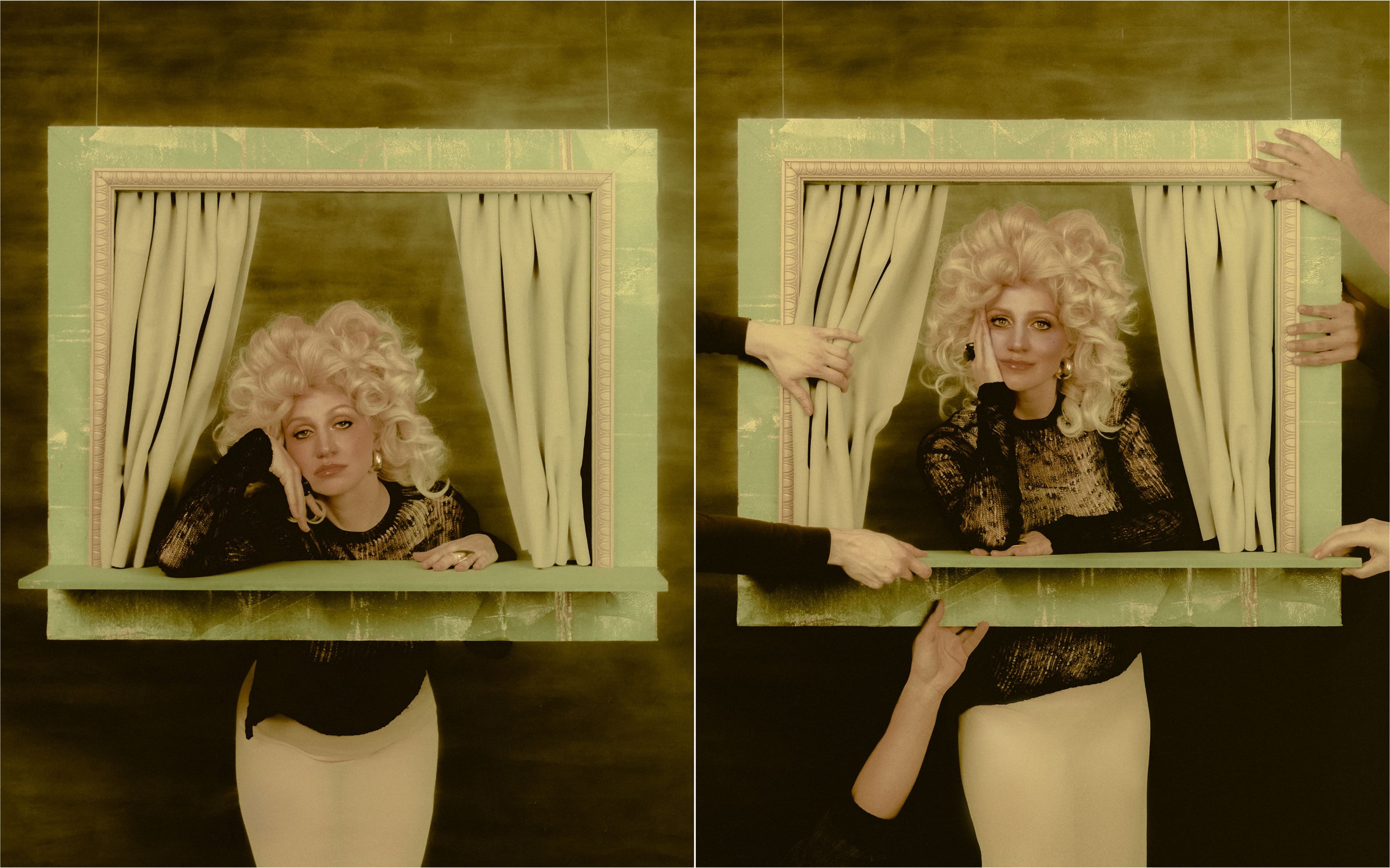
All CLOTHING by Issey Miyake. All JEWELRY by Dinosaur Designs.
Hers is the first voice on the cast recording, and its subsequent MTV pro-shot ensured its legacy. But she recalls being in rehearsals for that iconic movie’s adaptation and wondering which number they’d perform at the Tony Awards, only to have that dream pulled away when it didn’t score a requisite Best Musical nomination. “It was heartbreaking because I thought the show was so underrated,” Ashford recalls. “This was, what, fifteen years before the #MeToo movement? And it’s such an incredible piece of feminism, through and through. But now it’s become, in a lot of ways, a cult classic, especially after the London production.”
Days after Legally closed, she went into Wicked on Broadway, as Glinda proper, followed by meaty parts in Hair, Rent, Dogfight, Kinky Boots (her first Tony nomination), You Can’t Take it With You (her first win), Sylvia and, finally, Sunday in the Park with George in 2016. That role, opposite Jake Gyllenhaal and originated by Bernadette Peters, and so different from the bright and bubbly types she’d mastered, set her on the unexpected track of becoming a foremost interpreter of the work of Stephen Sondheim. Her return to the stage, after a 2017 summer stint in A Midsummer Night’s Dream in Central Park, was Sweeney Todd in 2023.
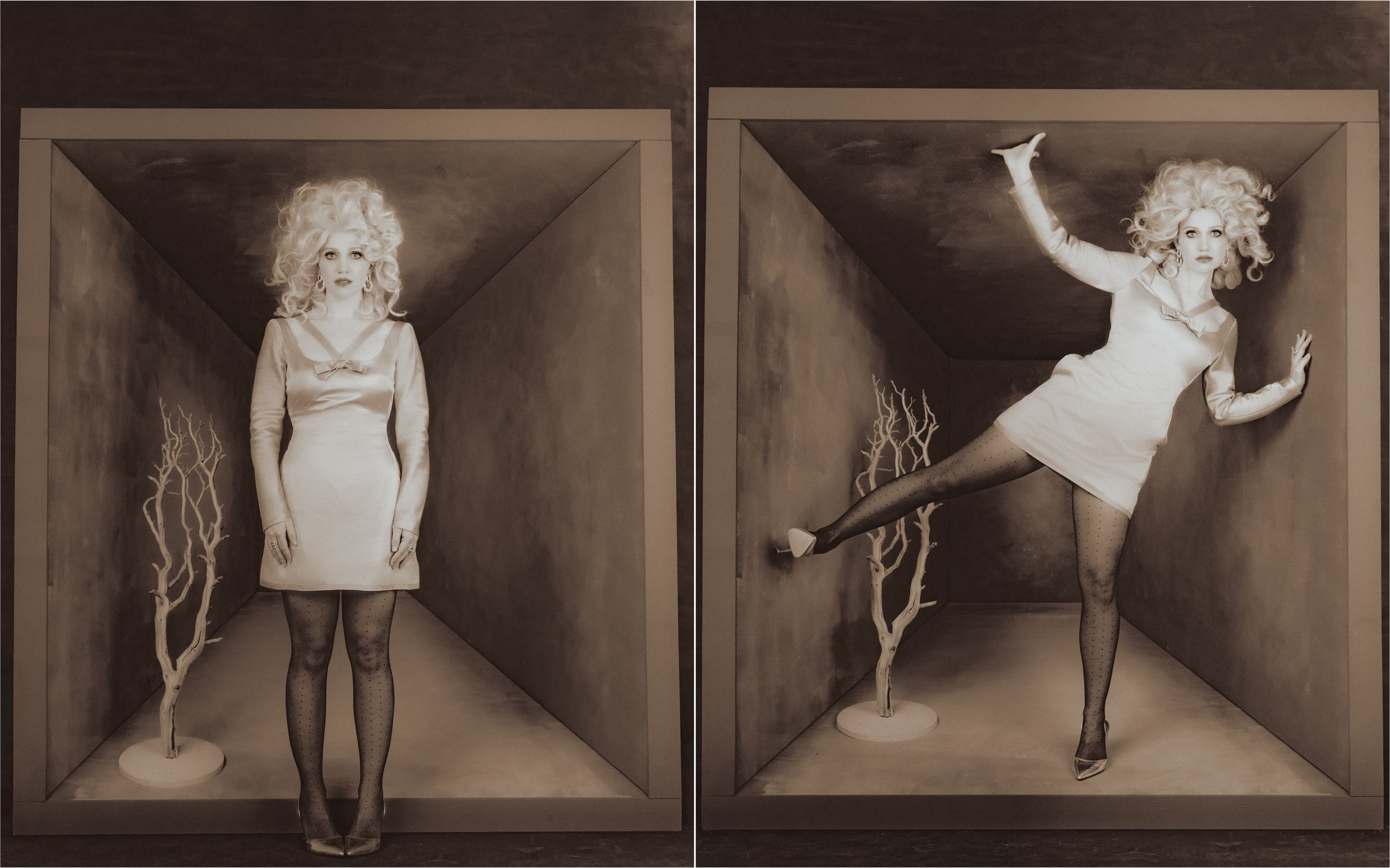
DRESS by Coach. TIGHTS, stylist’s own. SHOES by Marc Fisher. All JEWELRY by Alexis Bittar.
“It’s crazy to me that I’m here,” Ashford says. “Every character lingers, but Sondheim’s stay in the marrow of your soul forever. Especially the two roles I was so honored to play, in what I feel like are his two opuses—not just because I did them, but because of where they land in the course of his career.” As she puts it, the composer-lyricist “set the world on fire” with Sweeney, “got his heart broken” with Merrily We Roll Along, originally a historic flop, “then came back and mended it” with Sunday, a score she says includes lyrics everyone should spend some time with.
There are two lines in particular for her, the first of which could be used to describe her varied and, in terms of casting type, vastly expanding career: “Anything you do, let it come from you, then it will be new/Give us more to see.” The second she quotes as her salve to her industry’s ups and downs: “There are only two worthwhile things to leave behind when you depart this world of ours: children and art.” Both were lines she got to deliver, ones sharpened by Sondheim’s personal notes when working on the production, which she calls some of her career’s favorite treasures.
“Fame is fleeting, but good work lasts forever,” she says, appropriating Napoleon’s apocryphal proverb about glory and obscurity into a sort of actor’s prayer. “You do a great film, it lasts forever and people can watch it forever. If you’re in a great play, then it will be done again and people will learn from it for generations to come. People still talk about Laurette Taylor’s performance in the original Glass Menagerie. None of us can see it, but we still have the play.”
Happy Face continues on Thursdays on Paramount+.
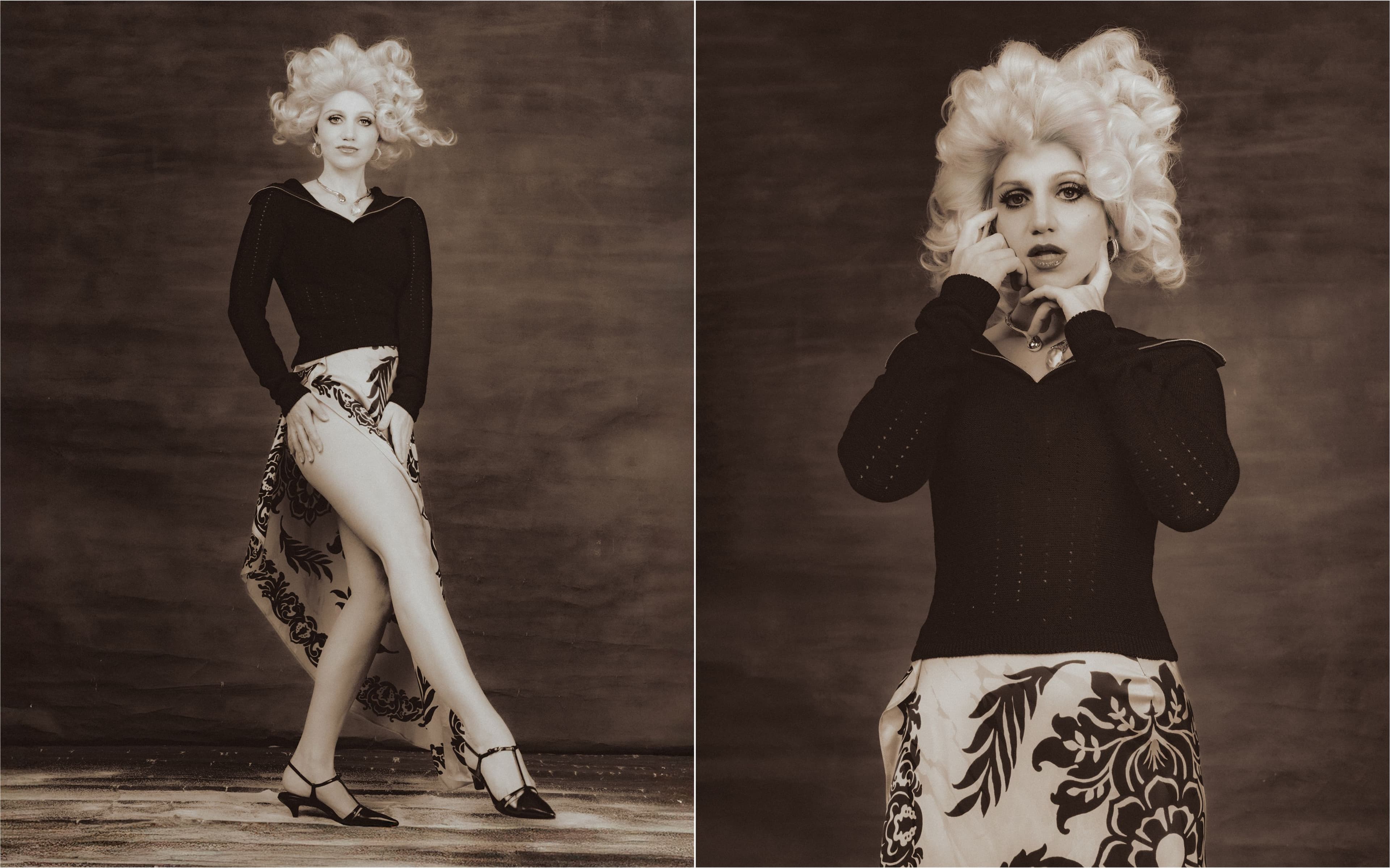
All CLOTHING and SHOES by Etro. All JEWELRY by Alexis Bittar.
As a nonprofit arts and culture publication dedicated to educating, inspiring, and uplifting creatives, Cero Magazine depends on your donations to create stories like these. Please support our work here.






